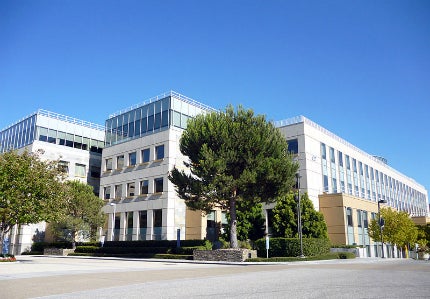

FDA investigate brain infection in patient receiving Novartis’s MS drug

The case of a patient that has developed a rare and dangerous brain infection, while taking Novartis’s multiple sclerosis (MS) drug Gilenya, is being investigated by the US Food and Drug Administration (FDA).

Discover B2B Marketing That Performs
Combine business intelligence and editorial excellence to reach engaged professionals across 36 leading media platforms.
The agency said yesterday that this is the first reported case of a brain infection, called progressive multifocal leukoencephalopathy (PML), detected in a patient receiving Gilenya and who had not previously received Biogen Idec’s Tysabri.
Tysabri is another MS drug that is associated with contracting PML.
Speaking to the Reuters news agency, Novartis said it had informed the FDA of the patient in July but does not think the infection is attributable to Gilenya.
Strathclyde scientists create drug detection computer programme
Researchers from the University of Strathclyde in Glasgow have designed a computer programme aimed at finding smarter drugs to treat major diseases, especially heart ailments.

US Tariffs are shifting - will you react or anticipate?
Don’t let policy changes catch you off guard. Stay proactive with real-time data and expert analysis.
By GlobalDataThe Shapeshifting Inspired Discovery (SID) is a new type of technology that is able to examine intricate shapes and understanding how proteins can be altered by drugs.
The programme is able to decipher the ‘structures of proteins in human cells’ that scientists believe to be essential for new treatments.
Shapeshifting also involves a completely different and more restrained mechanism than conventional drugs, which put a total stop to these proteins working.
The team, which created the SID, is working with US firm Serometrix, to use the programme in drug discovery for a variety of diseases and conditions.
Amgen acquires Onyx Pharmaceuticals for $10.4bn

Biotechnology firm Amgen has agreed to acquire US cancer drug producer Onyx Pharmaceuticals for about $10.4bn, offering $125 per share.
The Onyx deal is Amgen’s most prominent deal since its acquisition of biotech company Immunex in 2001 for $16bn.
The agreement is expected to give Amgen a strong position in the $47.7bn cancer treatment market, because it has complete ownership over the drugs developed by Onyx.
One of Onyx’s top cancer drug products is Kyprolis, which is said to be achieving annual sales of more than $2bn.
The FDA approved Onyx’s Kyprolis in July 2013 as a treatment for multiple myeloma, a type of blood cancer.
Scientists make breakthrough in finding cure for sleeping sickness
Scientists in Belgium say they have made significant progress in creating a cure for the most common form of sleeping sickness.
The gambiense strain of the trypanosoma parasite causes more than 97% of sleeping sickness cases in western and central Africa.
The parasite is resistant to the proteins the immune system produces to fight the infection.
The Belgium scientists from the Universite Libre de Bruxelles say they have developed a mutant version of the protein, which has shown in early tests that it can kill a wide range of trypanosomes, including gambiense.
EMA approves GSK’s Tyverb used in conjunction with Herceptin

The European Medicines Agency (EMA) has given marketing authorisation to GlaskoSmithKline for breast cancer drug Tyverb to be used in combination with Roche’s Herceptin in the European Union.
The drugs combination is for treatment of patients with HER2-positive metastatic breast cancer whose disease has progressed on a Herceptin-containing regimen.
Approximately 25% to 30% of women with metastatic breast cancer have tumours which over-express the HER2-positive protein.
Roche drops Herceptin patent extension bid in India
Roche has decided not to pursue a patent extension until 2019 in India for its blockbuster cancer drug, Herceptin, clearing the way for generic drug makers to manufacture the drug.
The patent for breast cancer drug Herceptin, also known as Trastuzumab, lapsed in May; however, the company had until November to claim its patent.
"Roche has come to the conclusion not to pursue Indian Patent No. 205534 (the secondary patent for Trastuzumab) and the related divisional applications. This decision takes into account the strength of the particular rights and the Intellectual Property environment in India in general," a spokesperson from Roche was quoted as saying by Indian publication The Economic Times.
New GSK-Pfizer HIV drug approved by FDA

ViiV Healthcare, a joint venture launched by GlaxoSmithKline, Pfizer and Japanese partner Shionogi & Co Ltd, to treat people living with HIV, has received approval from the US Food and Drug Administration for its once-daily 50mg tablet drug, Tivicay (dolutegravir).
Known as an integrase inhibitor, Tivicay prevents the HIV virus from inserting itself into host cells.
The drug is recommended to be used in conjunction with other antiretroviral agents for adults who have HIV-1 and who have either been treated with other medications or have not had any treatment.
Valeant Pharmaceuticals to acquire Bausch + Lomb for $8.7bn
Valeant Pharmaceuticals International has announced it will acquire Bausch + Lomb for $8.7bn in cash.
Eye health company Bausch + Lomb’s three business segments offer pharmaceutical materials, such as prescription and over-the-counter products, surgical equipment and ‘vision care’ products that include contact lenses.
According to the agreement, which received unanimous approval by the board of directors of both companies, Valeant will put forward the total sum of $8.7bn in cash, with $4.5bn of that amount being paid to an investor group headed by Warburg Pincus, while another $4.2bn will go towards repaying Bausch + Lomb’s remaining debt.




